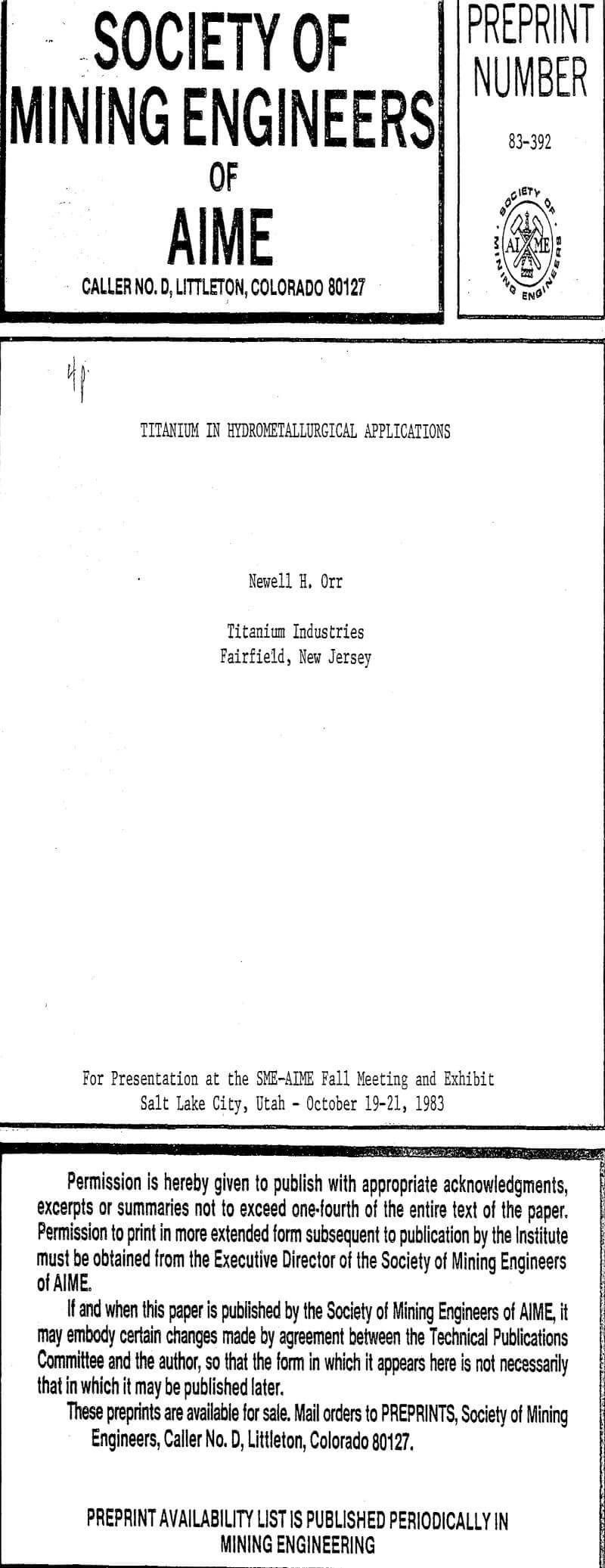Titanium’s performance characteristics in acidic oxidizing and mildly reducing environments make it applicable to numerous currently defined and many projected hydrometallurgical applications. With titanium’s current and projected availability and price stability increased use in pressure leach, piping systems and electrorefining is practical.
Titanium has a low density, .163 lb. per cubic inch, versus iron, as a guideline, of .281 lb. per cubic inch. Titanium’s tensile and yield strength properties are comparable to stainless steel. ASTM Grade 2 minimum 40 ski yield and 50 ksi tensile.
As the designating term implies, the commercially pure or unalloyed Grades are just that. They are minimum 98.5% titanium. Alloys 7, 9, and 12 are also relatively low in elemental metal additives. This lack of alloying constituents makes titanium resist volatile price changes due to shortages or price fluctuations of alloying additives such as nickel, manganese, chromium, molybdenum, cobalt, etc., used in stainless or high alloy steels. In the coming years this will have a significant effect on titanium’s competitive cost effectiveness.
Titanium’s resistance is further inhibited by oxidizing metallic ions in H2SO4 and HCl solutions. The corrosion resistance is based upon a closely knit oxide film formed on the surface and persists as long as the oxide film is intact. Titanium is not, however, the panacea to all corrosion problems and should be carefully evaluated for every considered use.
Titanium is a reactive metal and has great performance characteristics as a substrate. It has been used for many years in caustic-chlorine production as a dimensionally stable anode in which precious metals are impregnated or diffused into the surface. Capitalizing on this reactivity, it is possible to impregnate the surface of the metal at a much lower cost than the chlorine system precious metals coating to provide corrosion resistance far superior to the normal commercial pure series and equivalent to Grade 7 material.
Processes to treat copper, nickel, manganese, gold and uranium ores are being considered or are being used capitalizing on titanium’s beneficial properties.

